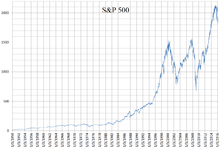Every year, as summer fades and the leaves begin to change, Americans across the nation prepare to celebrate a holiday that many see as the unofficial end of summer. But what is Labor Day really about? Is it just a day off work, or is there a deeper significance? Buckle up as we dive into the fascinating history, meaning, and celebrations surrounding Labor Day!
The Origins of Labor Day: A Historical Perspective
Labor Day, celebrated on the first Monday in September, has its roots in the labor movement of the late 19th century. But did you know that its inception was a response to the harsh working conditions faced by laborers? In the wake of the Industrial Revolution, workers were subjected to long hours, low wages, and unsafe working environments. The labor movement sought to address these injustices, and Labor Day emerged as a symbol of workers’ rights.
The First Labor Day Celebration
The first official Labor Day celebration took place on September 5, 1882, in New York City. Organized by the Central Labor Union, it was a day of parades, speeches, and festivities aimed at honoring the contributions of workers. But what happened next would change the course of American labor history forever!
Labor Day Becomes a National Holiday
Fast forward to 1894, when Labor Day was officially recognized as a national holiday. This came after a tumultuous period marked by strikes and protests, including the infamous Pullman Strike. In a bid to appease the labor movement, President Grover Cleveland signed the bill into law, making Labor Day a federal holiday. But why did it take so long for workers to gain this recognition?
The Struggles of the Labor Movement
The road to Labor Day was paved with struggles and sacrifices. Labor unions fought tirelessly for better working conditions, fair wages, and the right to organize. The establishment of Labor Day was a significant victory, but it was just the beginning. The fight for workers’ rights continues to this day!
What Does Labor Day Represent Today?
Today, Labor Day is more than just a day off work; it symbolizes the achievements of American workers and the ongoing struggle for labor rights. It serves as a reminder of the importance of fair labor practices and the need to protect workers’ rights in an ever-changing economy. But how do people celebrate this important day?
Labor Day Celebrations: More Than Just Barbecues
While many Americans enjoy barbecues, parades, and family gatherings on Labor Day, the celebrations vary widely across the country. From community events to political rallies, Labor Day is a time for people to come together and reflect on the contributions of workers. Here are some popular ways to celebrate:
- Parades: Many cities host parades featuring labor unions, local businesses, and community organizations.
- Community Events: Festivals, fairs, and concerts are common, showcasing local talent and culture.
- Political Activism: Some use the day to advocate for workers’ rights and raise awareness about ongoing labor issues.
- Family Gatherings: For many, Labor Day is a time to relax and enjoy quality time with loved ones.
Labor Day Around the World: A Global Perspective
While Labor Day is celebrated in the United States on the first Monday in September, many countries around the world observe International Workers’ Day on May 1st. This day, also known as May Day, is a celebration of laborers and the working class. But what are the differences between these two celebrations?
International Workers’ Day vs. Labor Day
International Workers’ Day has its roots in the labor movement and is often associated with protests and demonstrations advocating for workers’ rights. In contrast, Labor Day in the U.S. is more of a celebration, focusing on the achievements of workers rather than protests. However, both days share a common goal: to honor the contributions of workers worldwide.
Labor Day Myths: What You Need to Know
As with any holiday, there are myths and misconceptions surrounding Labor Day. Here are some common myths debunked:
- Myth 1: Labor Day is just a day off work.
Fact: It’s a day to honor the contributions of workers and reflect on labor rights. - Myth 2: Labor Day marks the end of summer.
Fact: While it’s often seen as the end of summer, it’s primarily a celebration of labor. - Myth 3: Labor Day is only for union workers.
Fact: It celebrates all workers, regardless of union affiliation.
How to Make the Most of Labor Day
Looking to make the most of your Labor Day? Here are some tips to celebrate meaningfully:
- Attend a Local Parade: Show your support for local workers and unions.
- Volunteer: Give back to your community by volunteering for local organizations.
- Educate Yourself: Learn about labor history and current labor issues to better understand the significance of the day.
- Spend Time with Family: Use the day to relax and enjoy quality time with loved ones.
Conclusion: The True Spirit of Labor Day
Labor Day is more than just a long weekend; it’s a celebration of the hard work and dedication of millions of American workers. As we enjoy our barbecues and parades, let’s take a moment to reflect on the struggles and achievements of the labor movement. Whether you’re a union member or a casual worker, Labor Day is a day to honor the contributions of all workers. So, this September, let’s celebrate the spirit of Labor Day and continue the fight for fair labor practices!
Join the Conversation!
What does Labor Day mean to you? How do you plan to celebrate this year? Share your thoughts in the comments below and let’s keep the conversation going!




